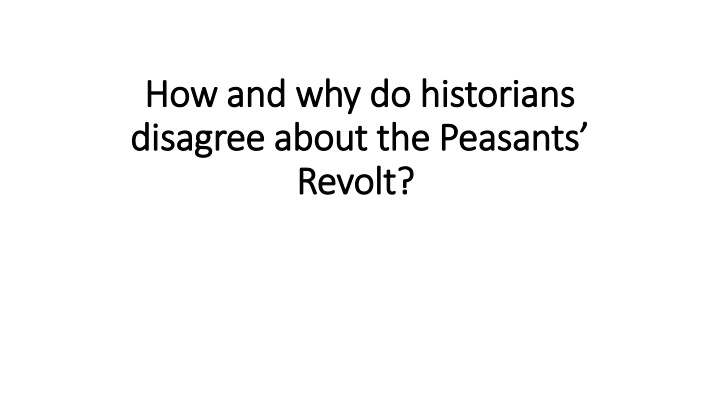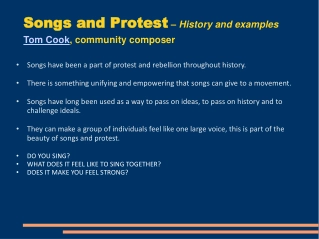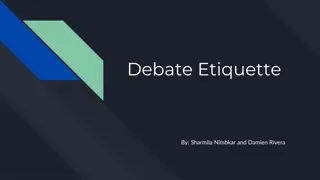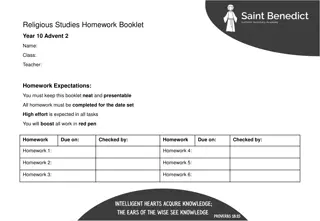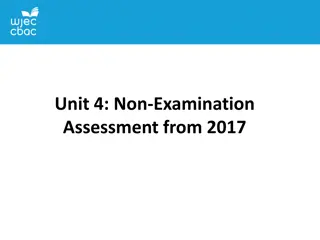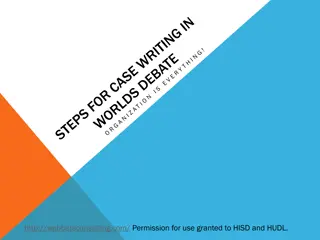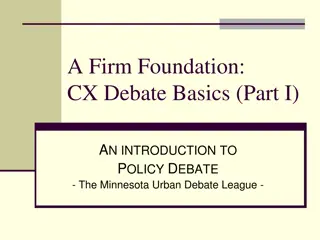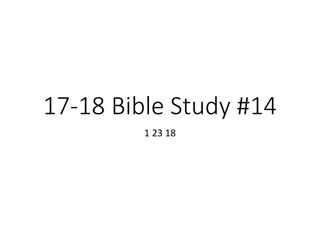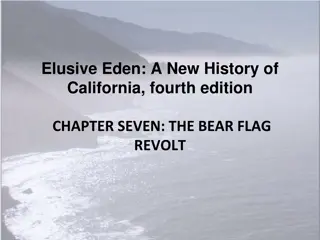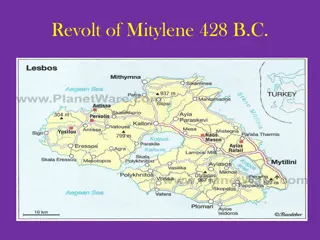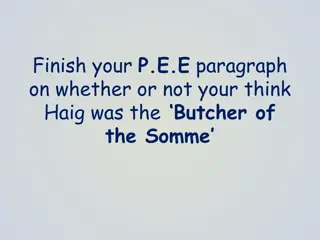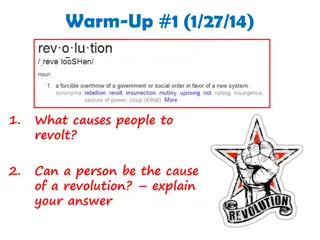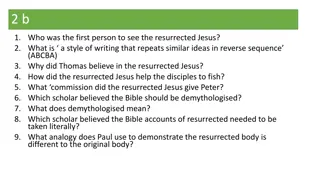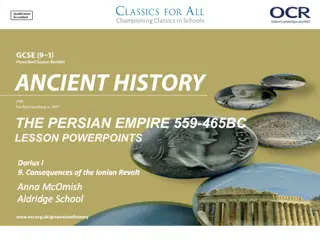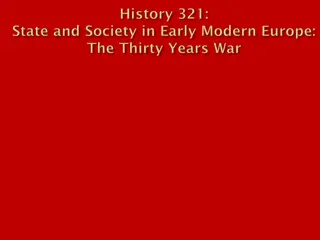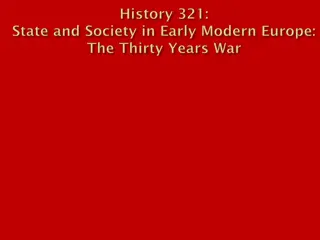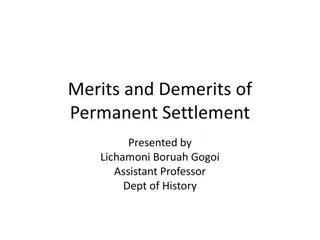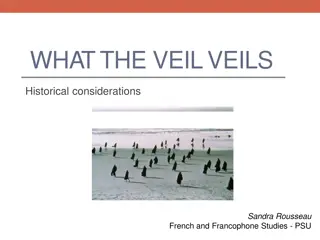Historical Debate: Peasants Revolt Interpretations
Resource for studying the historians' disagreements about the Peasants Revolt through Marxist and other viewpoints. Explore interpretations, evidence, and challenges to understand the complexities of historical analysis.
Download Presentation

Please find below an Image/Link to download the presentation.
The content on the website is provided AS IS for your information and personal use only. It may not be sold, licensed, or shared on other websites without obtaining consent from the author.If you encounter any issues during the download, it is possible that the publisher has removed the file from their server.
You are allowed to download the files provided on this website for personal or commercial use, subject to the condition that they are used lawfully. All files are the property of their respective owners.
The content on the website is provided AS IS for your information and personal use only. It may not be sold, licensed, or shared on other websites without obtaining consent from the author.
E N D
Presentation Transcript
How and why do historians How and why do historians disagree about the Peasants disagree about the Peasants Revolt? Revolt?
Overview for teachers: Overview for teachers: This resource provides students with the opportunity to sample real historical debate about the Peasants Revolt. The central viewpoint (worksheet on slide 4) is from Rodney Hilton s 1973 Bond Men Made Free, to enable students to study a Marxist interpretation in detail. There is then a more contemporary extract (worksheet on slide 5) to see how the Marxist view is challenged and how historians use evidence to substantiate their claims. The texts are unabridged and there is a mixture of closed and open questions to encourage students to engage first with the content and then with the concepts in the arguments. The questions are carefully pitched to develop comprehension, before moving on to deeper thinking. To make the texts even more accessible, they could be read by the teacher, either live or in recorded form.
Suggested uses in the classroom: Suggested uses in the classroom: Possible stand-alone homework tasks a follow-up from a study of the Peasants Revolt Extension tasks for the curious A stand-alone resource for cover lessons A boost to literacy and reading real historical debate The basis for a classroom debate taking a Marxist viewpoint and then challenging it with counter-arguments More useful at Key Stage 3 as an introduction to the concept of interpretations, rather than an in-depth analysis of the historiography of this specific event
Marxism is a social, political and economic philosophy named after the philosopher Karl Marx. It examines the effect of capitalism on labour, productivity and economic development and argues for a workers revolution to overturn capitalism in favour of communism. Do you think that Hilton is a Marxist historian? Explain your reasons. Can you find a word or phrase (in bold) in the text that means: 1) The way the modern world works on a system of competition, big business and dominated by the wealthy 2) The surnames of three of the leaders of the Revolt 3) European 4) To fight with someone or something to achieve 5) Opposing/being put against another 6) A group of people or an organisation with a particular set of ideas or opinions 7) Spoken/expressed 8) Going against held beliefs 9) Underground/hidden/trying to destroy something Historical interpretations of the Peasants Revolt: The peasants in 1381 need to be understood in terms of a century of past struggle at village level in England, those earlier struggles need to be seen as part of a continental movement... the ideas enunciated by the leaders of the rising, especially those critical of the church s role could not simply have sprung from the heads of Tyler, Ball and Straw we must look wider to critical or heretical thinking in France, Italy, Germany and elsewhere, and to its subversive social and political implications part of a European movement in which peasants communities were to be pitted against State, church and nobility for two or three centuries to come as they had been for the two or three previous centuries... What could the fate of peasant societies in the present world [1973] of almost world-wide commercial and industrial monopoly capitalism have in common with that of the peasant societies of the late medieval world? Clearly, the tasks of leadership in contemporary peasant society have nothing in common with the tasks of the past, except in the recognition that conflict is part of existence and that nothing is gained without struggle. Which of the statements below better represent Hilton s view of the Peasants Revolt? What is Hilton s view of how society is structured in his time (mid-twentieth century)? 1. Hilton argues that the Peasants Revolt was part of a long narrative of uprisings of working people against powerful people before and after 1381. (Rodney Hilton, Bond Men Made Free, 1973) 2. Hilton sees the Peasants Revolt as a one-off event and says that it was the first time that peasants had risen up against the nobles. Extension task: Can you construct an argument that disagrees with Hilton?
What does it mean, in the context of the Peasants Revolt, that the rebels had a shared agenda ? Can you find a word or phrase (in bold) in the text that means: 1) Something caused by or influenced by events/people in one specific place nearby 2) An aim or reason for doing something 3) A man who is in charge of a prior or second in charge in an abbey 4) Grumblings things that you are unhappy about 5) Disagreement/argument 6) A building where monks and nuns live; this is also where local rules and taxes were decided 7) A person who writes about historical events as they happen 8) A man who is in charge of a monastery 9) Control over one s own affairs Historical interpretations of the Peasants Revolt: Hilton suggests that the rebels had a shared agenda. Firstly, I will look at how the actions in Suffolk were, in fact very localised in character. Secondly, I will look at how the Bury rebels pursued an agenda specific to their town. The radically different attitudes to looting of rebel groups is a key example of the localised character of the rebellion. Six separate chroniclers describe how the London rebels destroyed the Savoy rather than stealing . In Bury St Edmunds it is particularly clear that the rebels were pursuing local agendas. The Bury townsmen had fought against the abbey for self government for over a century, leading rebellions in 1264 and 1327. A settlement of 1332 reinforced the abbey s power, so these tensions were never fully settled. In 1379 there was a dispute between the town and the abbey over the election of a new abbot: a dispute which had not ended at the time of 1381 revolt. As discussed, leading figures from the 1379 dispute were involved in the murder of the prior in 1381. The townsmen of Bury did not rebel as part of a common rebel agenda, but took advantage of the crisis to pursue a long-standing and localised grievance against the abbey. (Joe Chicks, Kings College London, 2018) What evidence does Chicks use to challenge this view held by Hilton? Which of the two statements better represents Chicks view of the Peasants Revolt: Why might historians like Chicks and Hilton disagree with one another? (Clue: think about what they focus on and the evidence that they use) 1) The rebels in 1381 were not all working together. In local areas, people challenged what they saw as abuse of power and argued for freedoms. 2) The rebels in 1381 were not all working together. In local areas, they rebelled against religion and religious people. Extension tasks: Can you cite other reasons why people might have rebelled in 1381? Do these fall under local or national grievances?
